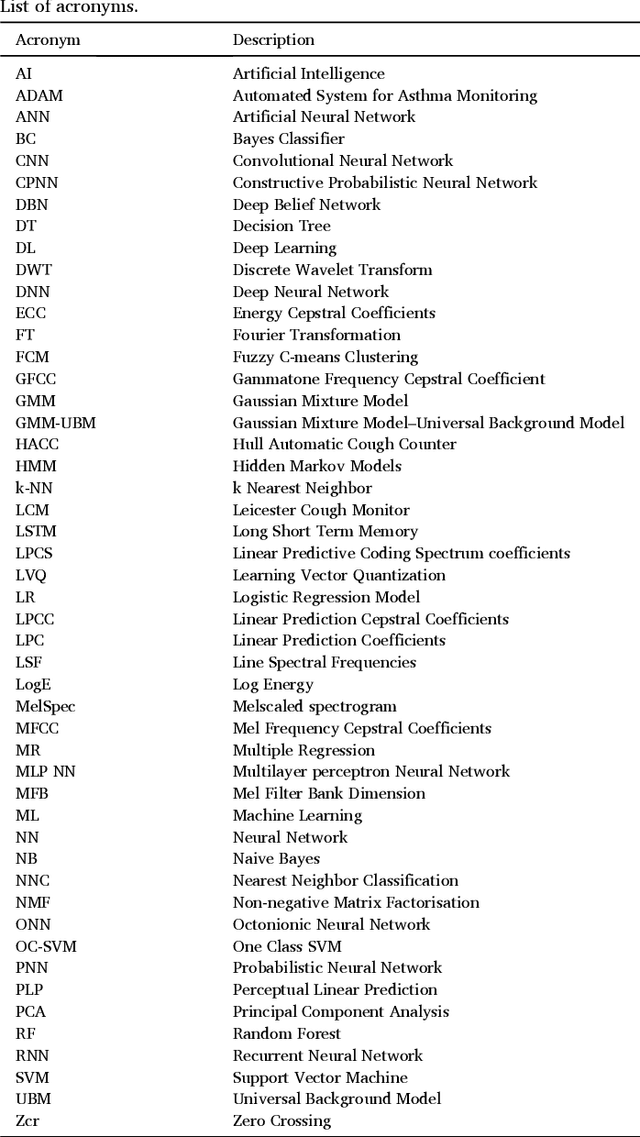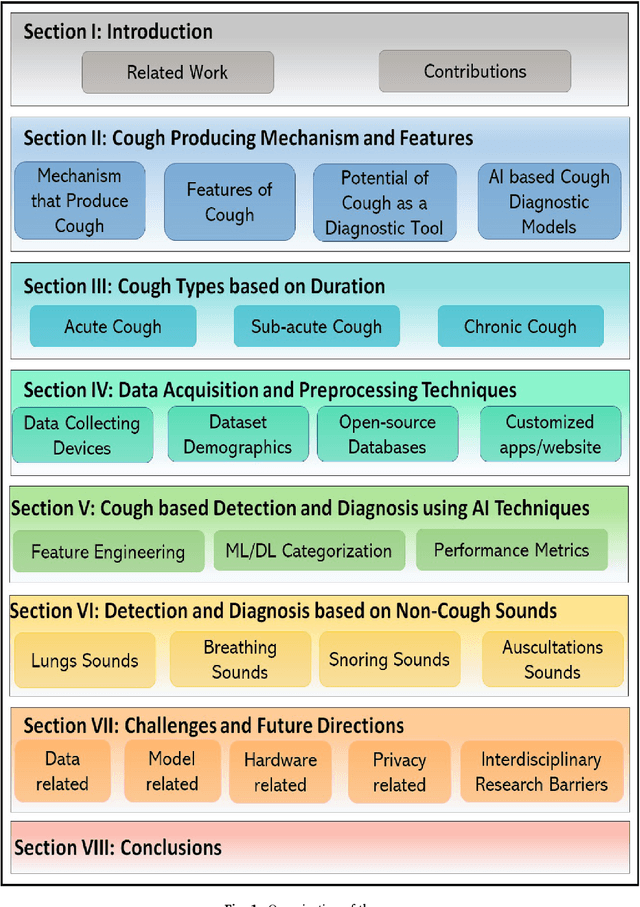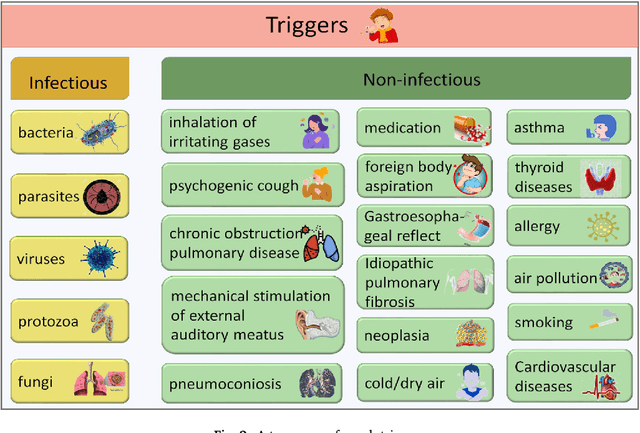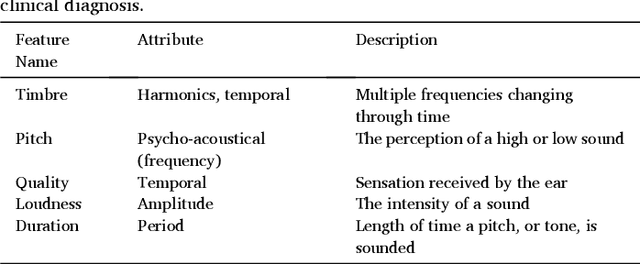Ali Rizwan
An AI-enabled Bias-Free Respiratory Disease Diagnosis Model using Cough Audio: A Case Study for COVID-19
Jan 04, 2024



Abstract:Cough-based diagnosis for Respiratory Diseases (RDs) using Artificial Intelligence (AI) has attracted considerable attention, yet many existing studies overlook confounding variables in their predictive models. These variables can distort the relationship between cough recordings (input data) and RD status (output variable), leading to biased associations and unrealistic model performance. To address this gap, we propose the Bias Free Network (RBFNet), an end to end solution that effectively mitigates the impact of confounders in the training data distribution. RBFNet ensures accurate and unbiased RD diagnosis features, emphasizing its relevance by incorporating a COVID19 dataset in this study. This approach aims to enhance the reliability of AI based RD diagnosis models by navigating the challenges posed by confounding variables. A hybrid of a Convolutional Neural Networks (CNN) and Long-Short Term Memory (LSTM) networks is proposed for the feature encoder module of RBFNet. An additional bias predictor is incorporated in the classification scheme to formulate a conditional Generative Adversarial Network (cGAN) which helps in decorrelating the impact of confounding variables from RD prediction. The merit of RBFNet is demonstrated by comparing classification performance with State of The Art (SoTA) Deep Learning (DL) model (CNN LSTM) after training on different unbalanced COVID-19 data sets, created by using a large scale proprietary cough data set. RBF-Net proved its robustness against extremely biased training scenarios by achieving test set accuracies of 84.1%, 84.6%, and 80.5% for the following confounding variables gender, age, and smoking status, respectively. RBF-Net outperforms the CNN-LSTM model test set accuracies by 5.5%, 7.7%, and 8.2%, respectively
Towards using Cough for Respiratory Disease Diagnosis by leveraging Artificial Intelligence: A Survey
Sep 24, 2023



Abstract:Cough acoustics contain multitudes of vital information about pathomorphological alterations in the respiratory system. Reliable and accurate detection of cough events by investigating the underlying cough latent features and disease diagnosis can play an indispensable role in revitalizing the healthcare practices. The recent application of Artificial Intelligence (AI) and advances of ubiquitous computing for respiratory disease prediction has created an auspicious trend and myriad of future possibilities in the medical domain. In particular, there is an expeditiously emerging trend of Machine learning (ML) and Deep Learning (DL)-based diagnostic algorithms exploiting cough signatures. The enormous body of literature on cough-based AI algorithms demonstrate that these models can play a significant role for detecting the onset of a specific respiratory disease. However, it is pertinent to collect the information from all relevant studies in an exhaustive manner for the medical experts and AI scientists to analyze the decisive role of AI/ML. This survey offers a comprehensive overview of the cough data-driven ML/DL detection and preliminary diagnosis frameworks, along with a detailed list of significant features. We investigate the mechanism that causes cough and the latent cough features of the respiratory modalities. We also analyze the customized cough monitoring application, and their AI-powered recognition algorithms. Challenges and prospective future research directions to develop practical, robust, and ubiquitous solutions are also discussed in detail.
 Add to Chrome
Add to Chrome Add to Firefox
Add to Firefox Add to Edge
Add to Edge